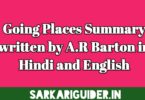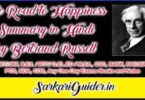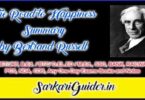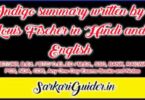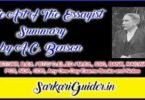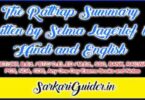William Wordsworth as a poet of Nature
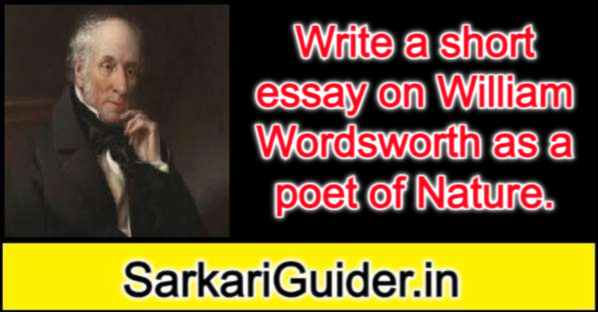
William Wordsworth as a poet of Nature
Q. Write a short essay on William Wordsworth as a poet of Nature.
William Wordsworth as a poet of Nature – Wordsworth is one of the greatest English poets. He is called the high priest of Nature. His originality lies in the fact that he always thinks of Nature as a mighty Presence. Like a faithful priest he stands before Nature and waits in solemn expectation to hear messages of wisdom from her. He does not read his moods in Nature rather he goes to Nature with an open mind and she creates her own mood of the moment in him. He can thus catch in Nature a mood different from his own mood, which arouses in him a sense of joy. It is thus which arouses in him a sense of joy. It is thus absence of himself in his conception of Nature which has helped him to produce Nature poetry so original and refreshing. He feels the presence of the spirit of Nature in all inanimate things.
Wordsworth’s attitude towards Nature can be classified as under (1) the period of the blood (2) the period of the senses (3) the period of the imagination and (4) the period of the soul.
Wordsworth passed his youth and formulative years of his life in the midst of Nature’s beautiful surroundings. The poem “Lines composed A Few Miles Above Tintern Abbey” beautifully portrays the stages of development of his love for Nature. First stage of his love for Nature was “a healthy boy’s love of the open air and freedom of the fields”. In his youth he was attracted by the physical beauty of Nature. He visited the hills and the vales for angling, snaring birds, hunting and enjoying the beautiful sights of Nature. The coarser pleasures of Nature gave him joy in his boyish days.
In the second stage he loved Nature with a passion which was all physical, without having an intellectual or philosophical association. He bounded over the mountains like a ‘roe’ and this idea finds expression in these lines of the poem-
“In youth from rock to rock / went,
From hill to hill in discontent,
of pleasure high and turbulent
Most pleased when most uneasy.”
It was an age of sweet sensations. The sights and sounds of Nature thrilled him. This idea finds expression in his poem Tintern Abbey” when he writes,
“The sounding cataract
Hauntered me like a passion, the tall rock
The mountain and the deep gloomy wood
Their colour and their forms, were then tome
An appetite, a feeling and a love.”
The poet was moved by something mysterious in Nature and the great mission of his life became to preach the gospel and the secret message of Nature to humanity. He begins to feel from now the presence of a soul and a living spirit in the objects of Nature. He now starts finding, into natural objects.
“A spirit, that impels
All thinking things,
all objects of all thought,
And rolls through all things.”
Finally the poet reaches a stage where he feels the presence of a common unity, among the different objects which is divine in origin. This universal unity, according to Wordsworth is due to the permeation of divine Which reveals the fact that with Nature he can now associate human To Wordsworth the different objects of Nature are a perenial source of joy to mankind. It not only gives him happiness but also helps him in which is inspired by the presence of divine spirit in them. He finds it in the objects are different but there is an undercurrent of semblance and unity shining of the stars and also marks it in the flowering of the fields- facing the ordeals of life. Thus though in outward manifestation the various inspiration in them. In his poem Tintern Abbey’ he writes,
“For I have learned
To look on nature, not as in the hour
of thoughtless youth, but hearing often times
the still, sad music humanity,”
Which reveals the fact that with Nature he can now associate human sufferings and sorrows.
To Wordsworth the different objects of Nature are a perenial source of joy to mankind. It not only gives him happiness but also helps him in facing the ordeals of life. Thus though in outward manifestation the various objects are different but there is an undercurrent of sembiance and unity which is inspired by the presence of divine spirit in them. He finds it in the shining of the stars and also marks it in the flowering of the fields-
“In all things in all natures, in the stars
This active principle abides from link to link
It circulates the soul of the world.”
Wordsworth instills each and every object of Nature with life
“To every natural form rock, fruit or flower
Even the loose stones that cover the high way
gave moral life : I saw them feel.”
In his nature poems Wordsworth tries to establish a harmony between man and Nature. He believes that Nature can serve as a perfect educated man. This has been shown in his lucy poems. In the poem “Three years she grew” or “Education of Nature” he shows that under the care and guidance of Nature Lucy turns into a healthy and cultured lady. This poem shows Wordsworth’s faith in Nature’s active force in building up a perfect human being.
The poet feels happy when he lives in the midst of Nature. His heart
leaps up when he beholds a rainbow in the sky and when he thinks about the daffodils, “his heart with pleasure fills and dances with the daffodils.”
Wordsworth is fascinated by the sound in the objects of Nature, just
as Shelly was fascinated by the colour in the spectacles of Nature, To
quote,
“A voice so thrilling ne’er was heard
spring time from the cuckoo-bird
Breaking the silence of the seas
Among the farthest Herbrides.”
Wordsworth was a worshiper of Nature. He remained a true interpreter of Nature to humanity throughout his life. In the poem, “The Tables Turned” he says-
“One impulse from the vernal-wood
May teach you more of man
of moral evil and of good
Than all the sages can.”
Important Links
Metaphysical Poetry: Definition, Characteristics and John Donne as a Metaphysical Poet
John Donne as a Metaphysical Poet
Shakespeare’s Sonnet 116: (explained in hindi)
What is poetry? What are its main characteristics?
Debate- Meaning, Advantage & Limitations of Debate
Sarojini Naidu (1879-1949) Biography, Quotes, & Poem Indian Weavers
Charles Mackay: Poems Sympathy, summary & Quotes – Biography
William Shakespeare – Quotes, Plays & Wife – Biography
Ralph Waldo Emerson – Poems, Quotes & Books- Biography
What is a lyric and what are its main forms?

